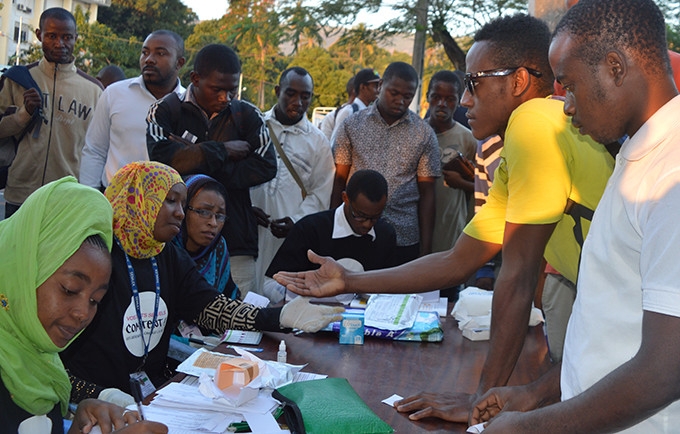UNFPA donates N$7 million worth of contraceptives to Namibia

The United Nations Population Fund has donated $7 million Namibian Dollars’ worth of contraception to Namibia’s public health facilities, this equates to approximately $60 thousand US Dollars.
The contraceptives provides include: 60,000 units of DMPA depo-provera and soloshots syringes, 110,000 units of noristerate and soloshots syringes, 5,000 units of Copper T 380A IUDs, 1,100 units of Jadelle implants, 200,000 units of female condoms and 7,000 implanon NTX.
Dennia Gayle, the UNFPA country representative, commented:
“We trust these contraceptives will benefit in particular adolescent girls and young women not only in urban communities but also the rural and hard to reach communities”
The Minister of Health Services, Dr Bernard Haufiku, highlighted that the contraceptives would be taken to the people who needed them most.
Previously in Namibia contraceptives have not reached their intended recipients; however, President Hage Geingob has emphasised that any secretaries and officials who derail service delivery will be held accountable.
Dr Bernard Haufiku added:
“We’re not informed enough to combat unwanted pregnancies. It is commodities such as this that will help us go forward”
Without access to contraception poor women, especially those who are less education and live in rural areas, are at a higher risk of unintended pregnancy.
Women often lack power to decide when or how often they become pregnant without contraception. This can limit their education, delay their entry into employment and reduce their earnings. This limits the ability for women, their families and their wider community to build a better life.
Dennia Gayle noted:
“It is essential that we act now to close this gap and ensure that family planning is an option for everyone who needs it, including adolescent girls and young women”
“We need our young people to stay in school, build their skills and competencies and prepare them for a labour market that is vibrant and efficient”
UNFPA estimates that 1.2 billion adolescents are entering or have already entered their reproductive years yet most have limited access to contraception and a no access to comprehensive sex education.
There is an urgent need that contraception and sex education programmes are aimed at adolescents and that programmes for sexual and reproductive health are scaled up, particularly within rural areas.
Join us at the 3rd Annual Aid & Development Africa Summit on 27-28 February in Nairobi to discuss the latest developments in health and WASH.
If you’d like to stay informed on the latest updates in aid and development, please sign up to the AIDF newsletter.
Photo credit: UNFPA















